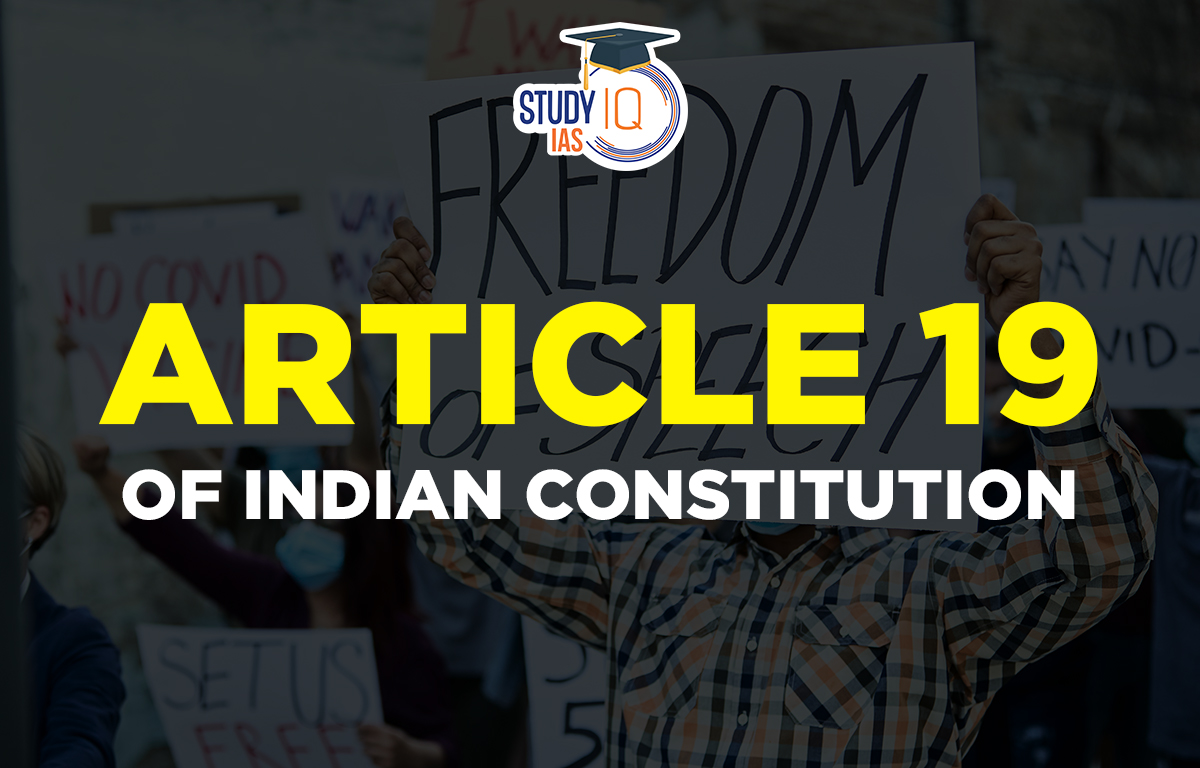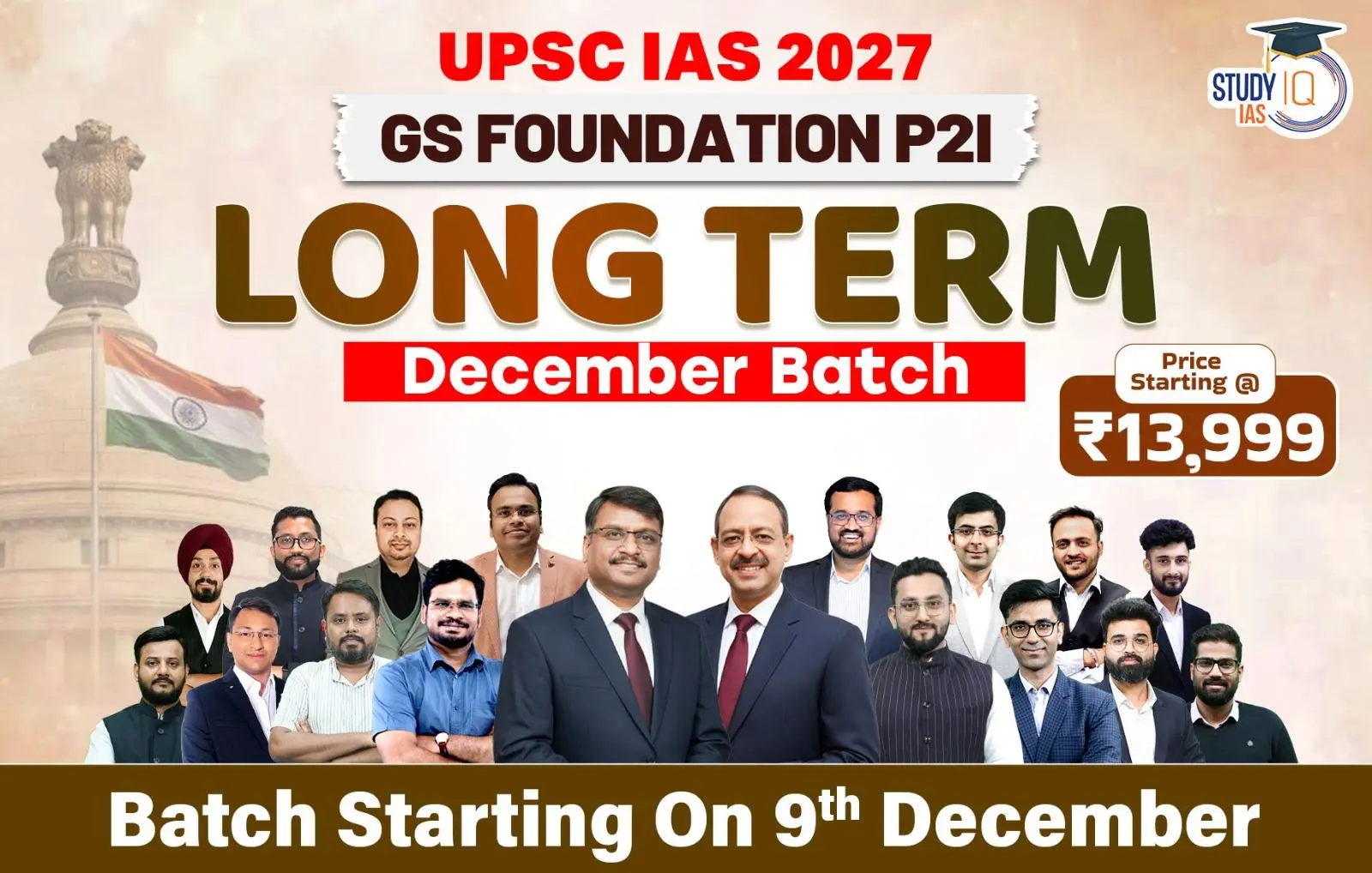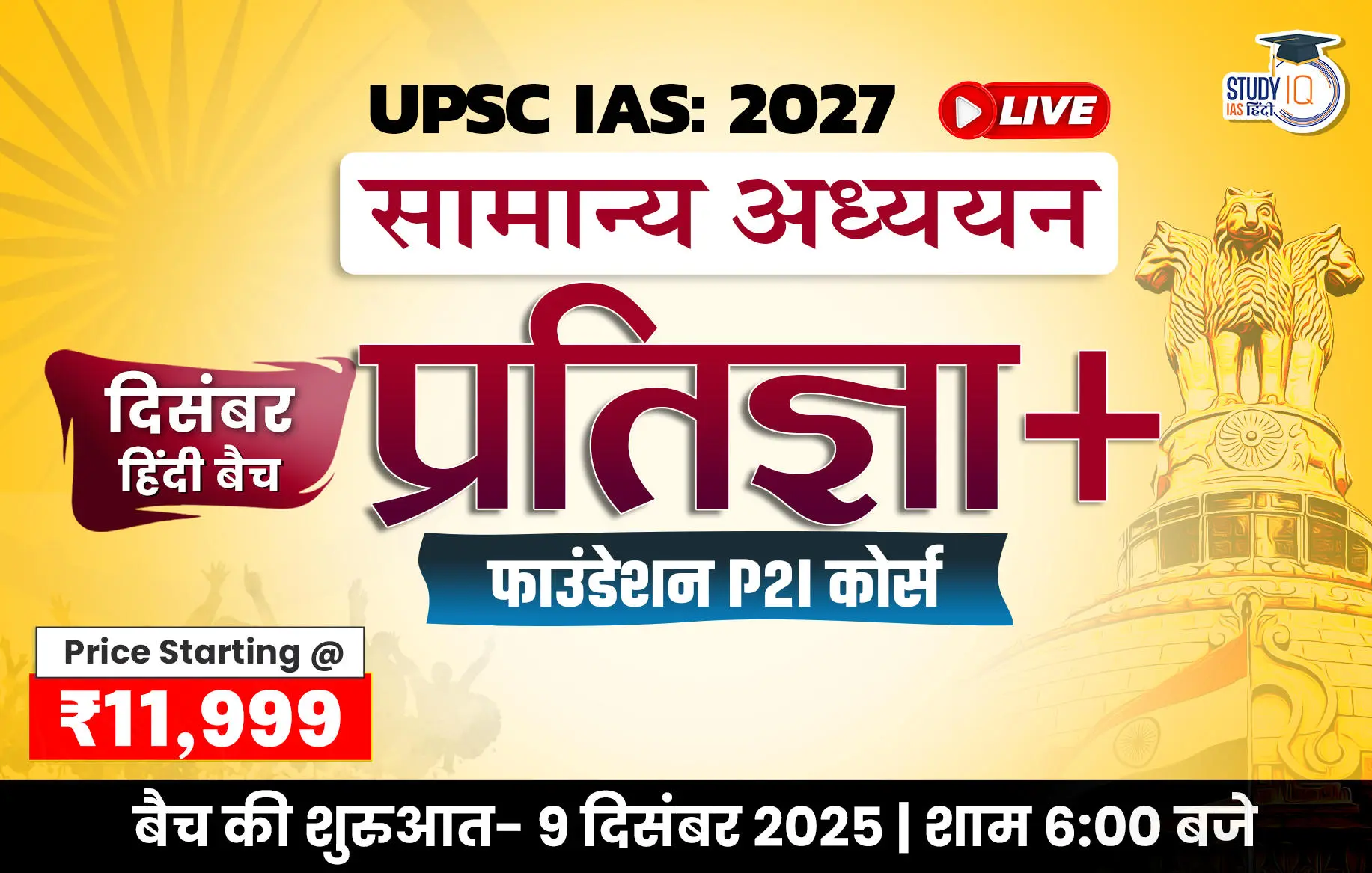Table of Contents
Article 19 of Indian Constitution
Part III of the Constitution includes ‘Fundamental Rights’ (Articles 12 to 35), which protect citizens from undue interference by the government in their personal and professional lives. One important right is Article 19, which guarantees freedom of speech and expression, allowing individuals to express their thoughts freely. This right empowers citizens to speak out against government wrongs without fear of punishment.
Article 19 also includes other rights, such as the right to assemble, move freely, reside anywhere in the country, and choose any profession. These fundamental rights are essential for a democratic society, as they enable citizens to participate more freely in national activities.
Initially, the Constitution of India provided seven freedom rights under Article 19 of Indian Constitution, but the 44th Constitutional Amendment Act 1978 by Indian Government omitted Article 19(1)(f) Right to Acquire, hold and dispose of Property, presently it is under Article 300A and is reduced merely to a constitutional right.
Read More: Right to Equality
Article 19 of Indian Constitution Clauses
Every Indian citizen is entitled to six essential freedoms under Article 19 of the Indian Constitution, including:
| Clauses of Article 19 |
|
Read More: Articles 12 and 13
Article 19(1)(a) of Indian Constitution
Article 19(1)(a) and 19(2): All citizens have the right to freedom of speech and expression under Article 19(1)(a) of the Indian Constitution. This right is very important in a democratic society as it allows people to express their thoughts and opinions freely. It is essential for individual freedom and greatly influences public opinion.
Freedom of Speech & Expression Meaning
The right to express oneself through any means, including speaking, writing, images, signs, and the internet, is known as freedom of speech and expression. The right to be informed and to express their opinions, as well as the right to possess an opinion has been ensured to every citizen of India.
Freedom of Speech and Expression Scope
The courts have acknowledged a number of aspects of the right to free speech and expression. The following list includes some of the elements or rights that make up freedom of speech and expression.
Freedom of Press: Press freedom is perhaps the most essential freedom right enshrined under the Right to Speech and Expression. Although, it has not been explicitly mentioned in the constitution. Freedom of the press is ensured with the following:
- No, restrictions on the publication of articles on matters of public importance
- There should be no pre-censorship in the press.
- They have freedom for circulation of newspapers.
- No excessive tax to be imposed on the press etc.
While the right to free speech is important, it comes with reasonable restrictions under Article 19(2) of the Indian Constitution. In the Bennett Coleman & Co v. Union of India (1972) case, the Supreme Court emphasized that press freedom is essential for free expression.
The Right to Know was highlighted in State of U.P. v. Raj Narain (1975), where the Supreme Court ruled that citizens have the right to know about public actions taken by government officials. This transparency is crucial for democracy. The Right to Information Act of 2005 formally recognized this right as part of freedom of speech.
Additionally, the Right to Remain Silent is also protected. In Bijoe Emmanuel v. State of Kerala (1986), the Supreme Court ruled that students who chose not to sing the National Anthem were exercising their freedom of speech, as there was no law to force them to do so.
Freedom of Speech and Expression Restrictions
Free speech and expression are not absolute rights and are subject to appropriate limitations. Article 19(2), imposes reasonable restrictions on the following grounds:
| Restrictions |
|
Read about: Article 14 of Indian Constitution
Article 19(1)(b) of Indian Constitution
Article 19(1)(b) and 19(3): Article 19(1)(b) of the Indian Constitution gives people the right to assemble peacefully and without weapons. This means citizens can hold public meetings, processions, and even hunger strikes, as long as they are nonviolent and do not involve weapons.
In the case of Himmat Lal v. Police Commissioner, Bombay (1972), the Supreme Court struck down a rule that let police ban all public gatherings. The court ruled that while the government can set reasonable rules to keep public order, it cannot completely stop people from holding meetings or processions.
Freedom of Assembly Restrictions
Under Article 19(3), reasonable restrictions can be imposed on the ground:
| Restrictions |
Other Restrictions: A magistrate may halt an assembly, meeting, or procession under CrPC Section 144 if there is a chance that it will disturb the law and order. The IPC Section 141, restricts a group of five or more individuals from gathering at a place that is illegal if its purpose is to:
|
Read about: Article 15 of Indian Constitution
Article 19(1)(c) of Indian Constitution
Article 19(1)(c) and 19(4): Article 19(1)(c) gives people the right to form organizations, unions, or cooperative societies. This means that a group of individuals can come together to achieve a common goal, whether it’s for their own benefit, for the public good, for scientific research, for charity, or for other reasons.
This right is crucial for democracy because it allows political parties to be created, which is essential for a functioning democracy. So, the freedom to form associations is seen as vital for a healthy democratic society.
Freedom to Form Associations or Unions
The right to form organizations and unions includes the freedom to found companies, societies, trade unions, partnership enterprises, clubs, etc. The right encompasses all aspects of an association’s formation, administration, and operation, going beyond simple creation. Article 97 of the 2011 Constitutional Amendment Act authorized the founding of cooperative societies.
No Right to Strike: The Supreme Court held that the trade unions have no guaranteed right to effective bargaining or right to strike or right to declare a lockout
T.K. Rangarajan vs. State of Tamil Nadu 2003: In this case, the Supreme Court held that government officials don’t have the statutory or fundamental rights to strike.
Freedom to form Associations Restrictions
| Restrictions |
Reasonable Restrictions: Article 19(4) imposes reasonable restrictions on the Freedom to form an Association on the following grounds:
|
Read More: Article 16 of Indian Constitution
Article 19(1)(d) of Indian Constitution
Article 19(1)(d) and 19(5): Article 19(1)(d) of the Indian Constitution ensures an Indian citizen’s freedom of movement throughout the nation. A person has the freedom to migrate between states and between locations inside a state. This privilege upholds the notion that, in terms of its citizens, India is a single entity. Therefore, the goal is to advance nationalism rather than localism.
Article 19(5): It provides dual grounds for imposing reasonable restrictions on this freedom, namely, the interests of the general public and the protection of interests of any scheduled tribe.
Dimensions of Freedom of Movement
Freedom of movement has two dimensions,
- Internal movement is the right to move inside the country which is protected by Article 19.
- External movement right to move out of the country and the right to come back to the country: which is protected by Article 21.
Read about: Constitution Day of India
Article 19(1)(e) of Indian Constitution
According to Article 19(1)(e) of Indian Constitution, every citizen has the freedom to reside and settle in any part of the Indian territory. This right has two parts, firstly; Right to reside in any part of the country, which means to stay at any place temporarily, and secondly; the Right to settle in any part of the country has been ensured to Indian Citizens, which means to set up a home or domicile at any place permanently. This right is focused on removing barriers within the country or between any of its parts. This promotes nationalism and avoids narrow-mindedness.
| Restrictions |
Article 19(5): It imposes restrictions on the exercise of this right on two grounds, namely,
|
Read More: Overseas Citizenship of India
Article 19(1)(g) of Indian Constitution
Under Article 19(1)(g) of the Indian Constitution, the right to practice any profession and to engage in any occupation, trade, or business is guaranteed to all citizens of India. This right is extremely broad because it encompasses every source of income.
Article 19(6): In the interest of the general public, it places reasonable restrictions on the use of this power. In addition, the State has the authority to establish the professional or technical requirements for carrying out any employment, trade, or company, for instance. B.Ed can be necessary to become a teacher.
Citizens have the right to conduct any trade, business, or service, and the state can also run these without needing to exclude citizens. This means the state can operate businesses like Indian Railways and ISRO without having to justify its monopoly. However, this right doesn’t cover unethical or dangerous activities, such as trafficking or dealing in harmful drugs. The state can completely ban or regulate these activities through licensing, like with online gambling.
Article 19 of Indian Constitution UPSC
The Supreme Court stated in the seminal decision of Maneka Gandhi v. Union of India (1978) that it is feasible for a right to be covered by an article 19(1) clause even if it is not expressly included in any of those clauses. This is accurate since Article 19(1)(a) implicitly mentions the freedom of the press as one of those crucial essential rights.


 SLAPP Suits: Meaning, Examples, Impact o...
SLAPP Suits: Meaning, Examples, Impact o...
 Finance Commission of India, Articles an...
Finance Commission of India, Articles an...
 High Number of Pending Cases in Supreme ...
High Number of Pending Cases in Supreme ...

























